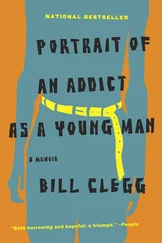On the second full day at camp, the Beverlys, as they had come to be known, asked June to switch her bunk with a chunky, gravel-voiced girl named Beth from Philadelphia. Beth and the Beverlys had been assigned the same cabin four down from June and Annette’s, and Beth, the cousins explained, not only smelled like garlic but stared at them when they were changing. June’s face prickles with heat as she remembers sneaking her sleeping bag and duffel to her new cabin while Annette ate lunch with the others in the lodge. Later that night, one of the counselors showed up at June’s cabin with Annette and insisted on speaking to June. She hadn’t believed Beth when she explained that June had asked her to switch bunks. June remembers Annette’s face relaxing as she entered the cabin. She imagines what must have raced through her head in that moment — here was June, her best friend, the girl she traveled halfway across the country with, who knew everything there was to know about her and who was wearing the rope bracelet Annette made for her birthday two years ago. Here was June and she would clear everything up. June remembers how she attempted to be casual, to pretend that nothing important had transpired or changed. But as she stumbled through a rehearsed explanation that it seemed like a good idea to give each other space and meet new people, Annette’s face froze. She looked at June as if she were regarding a complete stranger. It was not anger or hurt that registered on her pale, blank face. It was horror. June had, in that instant, transformed into someone she didn’t know. June can see Annette shaking her head as if she had been hit from behind by a thrown rock. She can see her turn toward the cabin door and walk away as the Beverlys snickered from their bunks. Annette went home the next morning. They were twelve years old and the two girls never spoke again. That fall, when they returned to Lake Forest Country Day for the first day of sixth grade, Annette would not look at her.
June wonders what became of Annette’s vast collection of porcelain horses. She took fastidious care of each one, dusting and polishing their glazed coats, gently brushing their manes and tails. There were dozens, maybe hundreds. Annette was an only child and had a playroom lined with white bookshelves loaded with those horses. She and her mother made special trips to antiques dealers in Springfield and Bloomington and Chicago to expand her collection. She had a real horse, too, a dark brown, gelding quarter horse she named Tilly, who was kept at a stable in Winnetka, but June was never invited there after school or on weekend mornings when Annette rode. June cannot remember the father clearly, only that he smoked a pipe, always wore a tie, and was rarely there.
After eighth grade, Annette and Tilly went East to a horsey boarding school in Virginia and June lost track of her. More than two decades later, after her divorce from Adam and after she’d moved to London, June was having lunch with a client, the American wife of a British banker, and when June’s childhood in Lake Forest came up, the woman asked her if she remembered a girl named Annette Porter. She’d been a sorority sister of hers at Butler University in Indiana. Great girl, the woman said, and though it stung to hear Annette’s name even all those years later, it was a relief to know she had been welcomed into a sisterhood somewhere and in that circle was considered great.
It never occurred to June before now what might have happened to Annette’s mother when her daughter left home. She imagines the poor woman taking up Annette’s duties dusting, polishing, and brushing the manes of each figurine. June pictures her now, all these years later, muttering to them, bringing them up to speed on the little neighborhood traitor who used to visit, the one who lured Annette to sleepaway camp and how she finally got what was coming to her.
Streaks of blue flash between the pines, and for a moment June struggles to remember where she is. She traces an imaginary map as she slows the car to a stop. Montana. Glacier National Park. Bowman Lake. She turns the engine off and watches the lake appear between the spaces in the trees. It reminds her of when Lolly would see a jumping light through the windows of the house in Connecticut at night and be convinced it was a UFO. She wouldn’t rest until they’d gone outside to see, and of course it was always just a star above the trees, beyond the house, blinking in and out of view. Still, she would insist that she’d seen something extraordinary.
June gets out of the car and looks for a path. The pine forest is dense, and though it is early afternoon and midsummer, the air is chilly under the branches. She fetches her coat from the car and wraps it around her shoulders before stepping off the road. Pine needles crunch softly beneath her tennis shoes and birds holler as she makes her way toward a clearing that overlooks a narrow strip of rocky beach. From there she can see the entire lake, which is much longer than it is wide and swerves gently to the left as it stretches toward its end. Impossibly straight pines cover the low hills that swell from the waterline, and beyond them rise hulking stone mountains. The landscape reminds her of northern Scotland, though these hills are younger, she decides, less worn-out.
The sun dazzles the wind-chopped surface of the water and the effect is blinding. There is, briefly, nothing but light. She squints from reflex, but the rest of her surrenders, waits to be erased. It is a quick oblivion, snuffed out as swiftly as it arrives. A cloud barges across the sky and returns color and shape to the trees, the hills, the pebbled shore. She waits for the sun to flare again, and soon it does. She feels its heat — enormous, perfect — and shivers as it recedes. She stands and waits for the radiant nothing to return and, as she does, remembers a motel shower four or five days ago in Gary, Indiana, with water pressure so forceful she saw stars as she let it pummel the back of her neck and head. She stood there until the water went cold. She thinks of the morning in her car days ago, just over the North Dakota state line, when she woke to the sound of idling school buses and shouting. Stiff from sleeping in the front seat and only half-awake, she blinked toward children in T-shirts and shorts dragging backpacks and lunch boxes. She had no idea where or who she was or what she was seeing. She looked at the light brick building, the buses, the American flag dangling from a white pole. Nothing was familiar. She was empty of memory, and instead of being frightened or upset, she was, dimly, without yet understanding why, relieved. The spell broke when she noticed her linen jacket bunched between the driver’s seat and the car door. It took nothing more than the sight of the wrinkled fabric for every last memory to return, including pulling off the interstate late the night before, looking for a motel and instead finding a quiet spot in the parking lot next to the school.
More clouds gather and the surface of the water darkens. She can now see more clearly the long, rectangular shape of the lake. It is just as Lolly described to her in a postcard once. Flawless . That was the word she used. She had found a flawless place, the first on her journey across country after her freshman year in college, perhaps the first ever. She’d been gone for more than a month when the postcard arrived, the first and the last she would send June from the trip. It was one of just four missives Lolly had ever mailed to her and the only one June saved. The postcard had been in the house, tucked away in one of her address books, but June remembers clearly the image of the lake, the Kalispell, Montana, postmark, the stiff closing, the clipped, telegram-like sentences wedged between the postcard’s edge and her London mailing address.
Читать дальше











